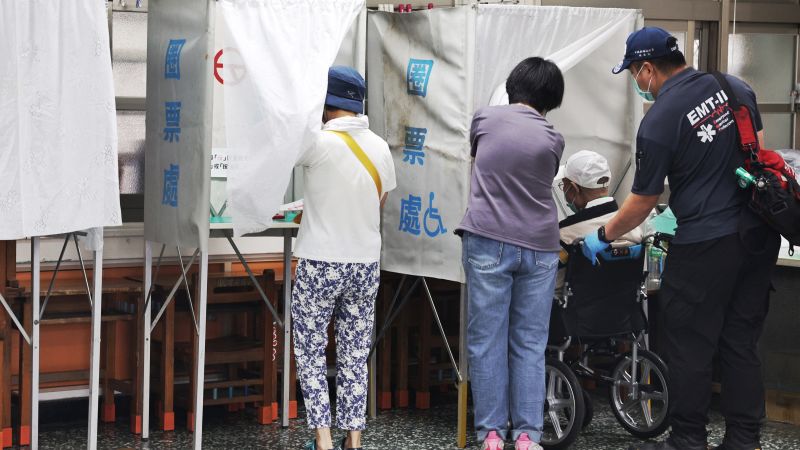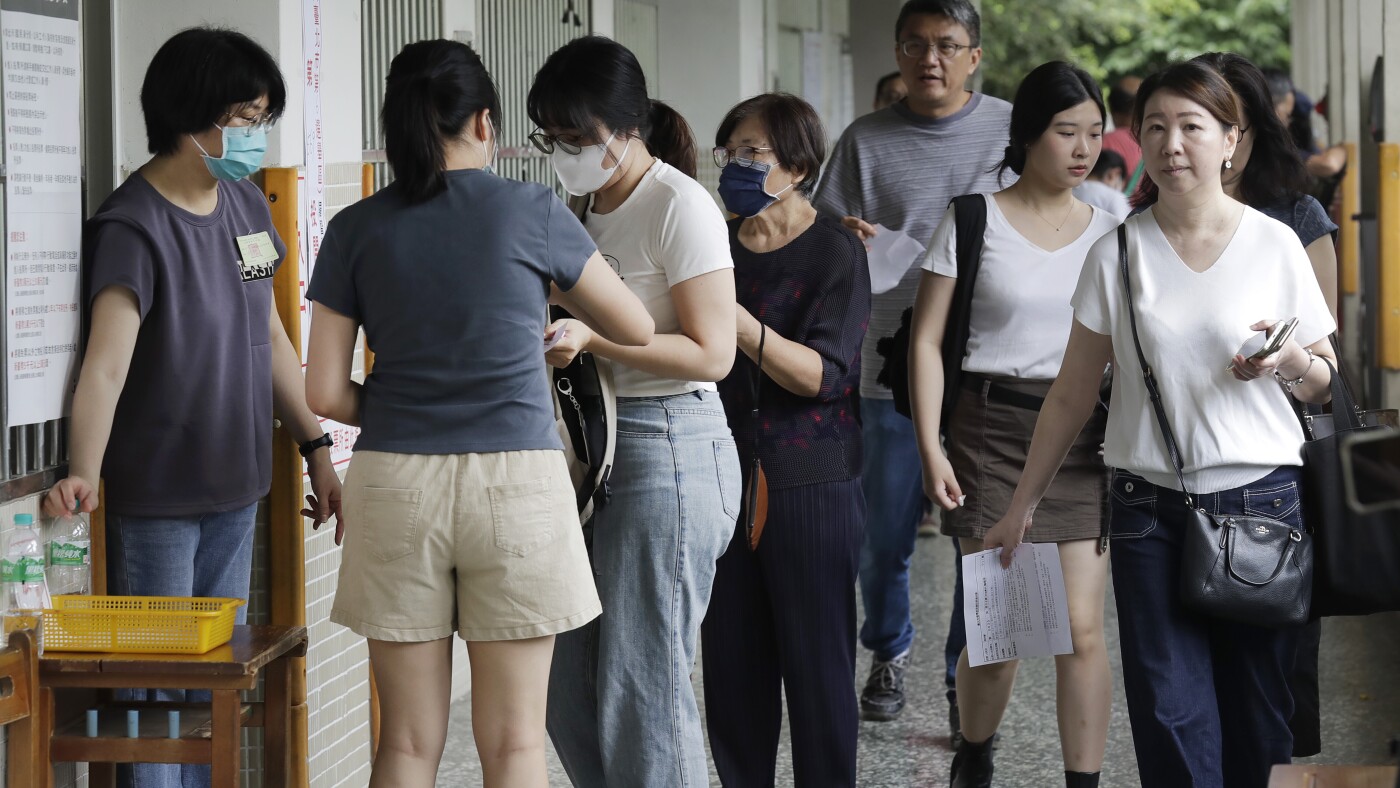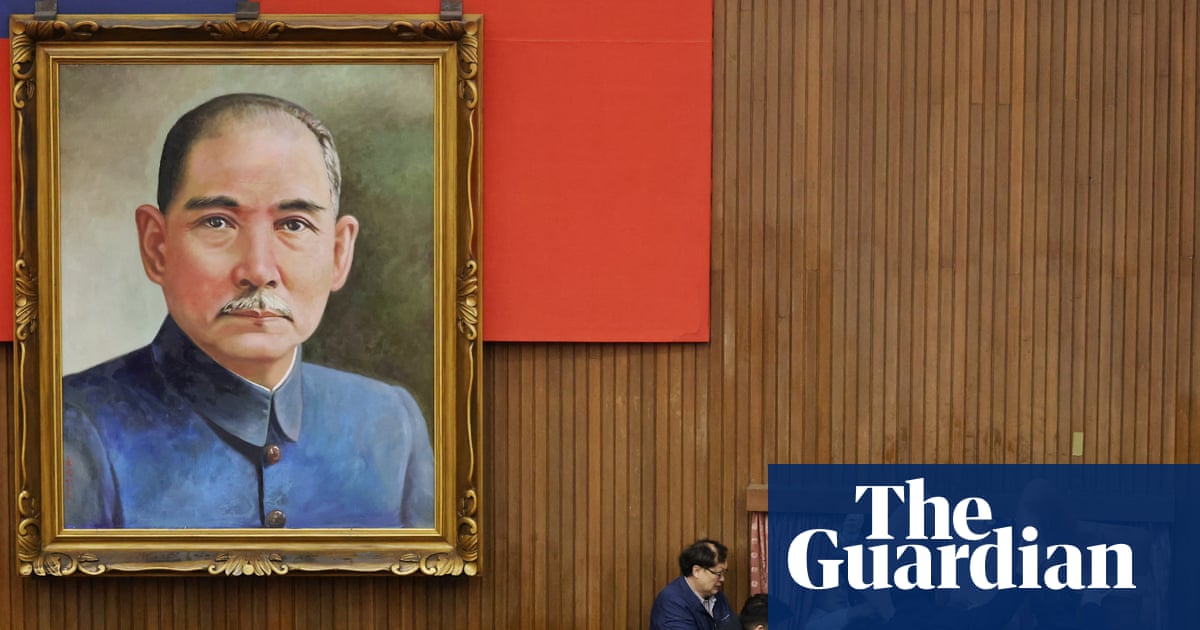T4K3.news
Taiwanese voters reject Nationalist lawmaker recalls
In a recent election, Taiwanese voters maintained their support for Nationalist lawmakers, upholding the current legislative balance.

A recent recall election in Taiwan saw voters reject efforts to remove Nationalist lawmakers.
Taiwanese voters maintain confidence in Nationalist lawmakers
Taiwan's recent recall election concluded with voters rejecting a proposal to oust about one-fifth of the Nationalist Party lawmakers. The ruling Democratic Progressive Party aimed to shift the dynamics in the legislature but failed to remove any KMT lawmakers. Official preliminary results indicated that the recall efforts fell short, with more challenges looming as another seven lawmakers from the KMT face similar votes in August. Currently, the KMT holds 52 seats against the DPP's 51, leaving the ruling party needing to unseat at least six KMT members to secure a legislative majority. Critics argue that the opposition stifles crucial legislation, particularly concerning Taiwan's defense strategies, fueling the calls for recall.
Key Takeaways
"All Taiwanese people chose stability, chose that the government should focus on getting things done."
KMT chairman Eric Chu emphasized the importance of governance over political strife.
"At the moment, there is very little Lai can do other than try to think of other creative ways to appeal to the public."
Political science expert Lev Nachman discusses Taiwan's shifting legislative power dynamics.
"The recall should not be reduced to a victory or defeat for political parties."
DPP Secretary-General Lin Yu-chang called for a deeper understanding of voter sentiment.
"Completely undermining Taiwan's democratic system is not the answer."
KMT representatives criticized the recall as politically motivated retaliation.
The results of the recall election reveal deep-seated divisions in Taiwanese politics. The measure's failure is a testament to the enduring strength of the KMT in their stronghold regions, suggesting that the DPP's attempts to reshape legislative power will meet stiff resistance. As the DPP faces local elections next year, the struggle for voter satisfaction becomes paramount. This political landscape illustrates the broader tensions regarding Taiwan’s identity and the delicate balance between maintaining independence and engaging with China. Lai Ching-te's administration is now compelled to rethink its approach to governance, focusing on constructive engagement rather than confrontation.
Highlights
- Voters showed that stability matters in turbulent times.
- Taiwan's recall election reveals the strength of the KMT brand.
- The DPP faces an uphill challenge ahead of local elections.
- Democracy is shown to be vibrant in Taiwan's recall efforts.
Political tensions raise concerns over Taiwan's democracy
The failure to remove KMT lawmakers has intensified political divisions, with claims of political retaliation reshaping future legislations. This situation poses risks to Taiwan's democratic integrity amid growing Chinese influence.
The political tension in Taiwan underscores the ongoing struggle between national identity and external pressures.
Enjoyed this? Let your friends know!
Related News

Taiwanese recall election fails to remove Nationalist lawmakers

Taiwan votes in historic recall election

Taiwan's KMT faces recall vote that may redefine its future

Taiwan votes on lawmakers linked to China influence

Results of Taiwan's controversial recall vote announced

Taiwan holds controversial vote targeting pro-China lawmakers

Taiwan opposition survives recall vote
